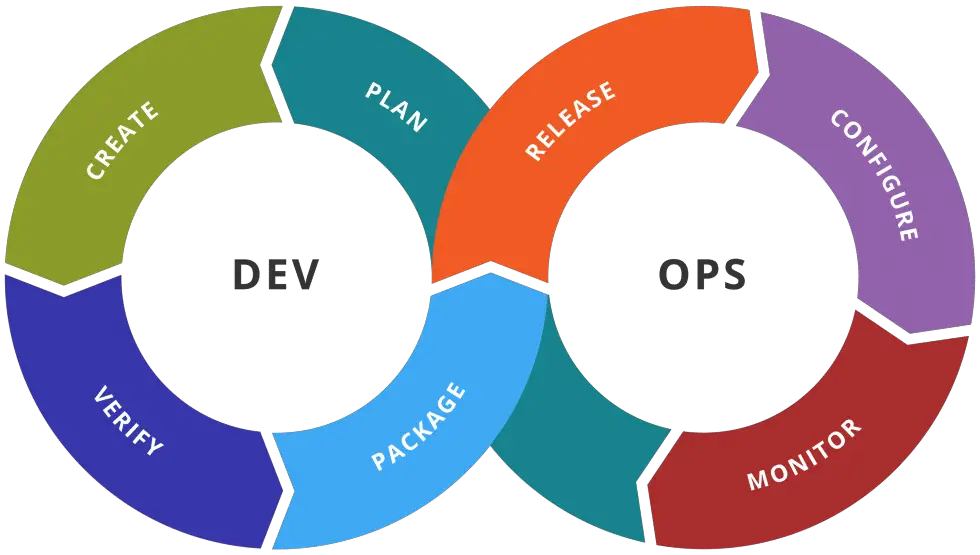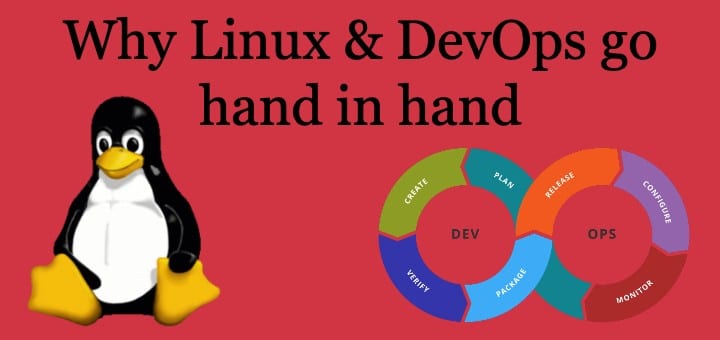
Linux and DevOps share a common agenda—scalability. Scalability enables fast software delivery, without forcing developers to compromise the quality of their codebase. Scalability promotes measurable and self-paced growth.
Recommended Read: Essential Linux Commands You Should Know
Also Read: Linux commands you should never run on your system
Linux was designed with scalability in mind. It was during the days when UNIX was the operating system in charge. One day, UNIX was closed off for modification, and developers no longer had control over the inner workings of the operating systems. Linux was born out of this need, and today it powers almost all of the technologies you’re using in your everyday life.
What Is Linux?
Linux is a free open-source Operating System (OS), offered for use under the GNU General Public License (GPL). Linux, like any OS, mediates between the hardware of the machine (CPU, memory, and storage) and its software. The OS manages how the hardware is used to meet the needs of the software.
A Linux-based OS uses a Linux kernel, which is used to manage the hardware resources. A bootloader runs the machine through a startup sequence, and daemons—background services—work in the background to ensure key functions run smoothly. The OS shell, or command line, receive code instructions from the developer and transmits them to the machine.
What Is DevOps?
DevOps is a methodology that unifies software development with information technology (IT) operations. DevOps prioritizes fast software delivery above all else, through the use of automation, integration, continuous collaboration, and open communication.
To maintain a standard level of quality, DevOps teams use Continuous Integration and Continuous Delivery (CI/CD) practices and tools. Continuous Integration (CI) practices improve the codebase is secure through frequent updates, and Continuous Delivery (CD) speeds up the process with automation.

Why You Should Use Linux for DevOps
1. Linux is everywhere
Since its release in 1991, Linux has gained a steady increase in popularity. Today, Linux runs many of the technologies that power up devices and services. From mobile phones, Google applications, social media networks, to GPS services, cloud computing environments, data lakes, Internet of Things (IoT) devices, and Artificial Intelligence (AI) products.
Whether you’re an application consumer or developer, chances are you’re using Linux. According to the 2019 StackOverflow developer survey, Linux is the most loved platform by the surveyed developers, over 25% of which use it as their primary OS. A core goal of DevOps is fast software delivery, and often that means building on existing infrastructure. Linux is a huge part of that.
2. Linux is part of the job
Since DevOps teams share many responsibilities, each role is required to be able to handle challenges as they come. There aren’t any closed-off departments and paper shuffling. DevOps engineer is required to demonstrate skills and knowledge of IT operations, as well as software development.
A DevOps engineer who knows how to configure operating systems and networking technologies will potentially have few software delivery obstacles. Linux and any other operating system is an essential component of any IT operation. Knowing how to configure Linux for DevOps is essential to a continual and speedy software delivery process.
3. Linux is customizable
The most popular highlight of Linux is its flexibility. You can install it on any device and customize any and every aspect of the OS, from the design of your workflow, from the applications it serves, your DevOps security protocols of choice, and the server environment. This is especially beneficial to DevOps environments, which thrive on a dynamic process.
Software delivery pipelines are often deployed to Linux server environments. If your local machine is Linux-native, you’ll be able to run tests on your device before deploying to the server. Otherwise, you’ll need to test elsewhere and wait for the results. This kind of delay is a thorn in the DevOps machine.
4. Linux is scalable
Scalability is key to the continuity of a DevOps operation. You need to be able to grow without having to change your operating system. To do so would be expensive and time-consuming. Fortunately, Linux is scalable. The Linux kernel can store and process huge amounts of memory, and the requisite hard disk drive (HDD) capacity. You can run it on anything from IoT devices to supercomputers, and keep modifying the OS so it fits your needs.
Best Linux Distros for DevOps
A Linux distribution, which is also known as a Linux Distro, is a pre-configured version of Linux. Unlike the open-source version of Linux, a Linux Distro has done the hard work of taking all the operating system components and compiling it into a unified system. DevOps team often use a Linux Distro to save time on configuration.
Linux Distros are commonly categorized based on the type of package they offer. For example, some Distros are better suited for a desktop, others were designed to work on servers, and there are also Distros suited for mobile devices.
Here’s a review of some of the most popular Linux Distros for DevOps:
- Cloud Linux OS—a Linux Distro built for cloud computing. It’s based on CentOS, which ensures the Distro is scalable, secure, and supports integration.
- Amazon Linux—a Linux image built for Amazon Elastic Compute Cloud (EC2). The image contains tools that improve workflows and platform integrations.
- Red Hat Enterprise Linux (RHEL) Desktop—a Linux Distro built for high-performance operations, such as Docker containers, Kubernetes, and cloud environments.
- CentOS—a Linux-based OS, inspired by Red Hat Enterprise, which makes it compatible with RHEL. CentOS also comes with free cloud computing support.
- SUSE Linux Enterprise Desktop—a Linux Distro for desktops. Its smart AppArmor system enables the installation of a firewall around applications.
Wrap Up
Linux offers the DevOps team the flexibility and scalability needed to create a dynamic development process. You can set it up any way that suits your needs. Rather than letting the operating system dictate how you work, you can configure it to work for you. There’s no greater freedom than that, and there is no better asset for DevOps teams then a Linux OS that supports the process at scale.
